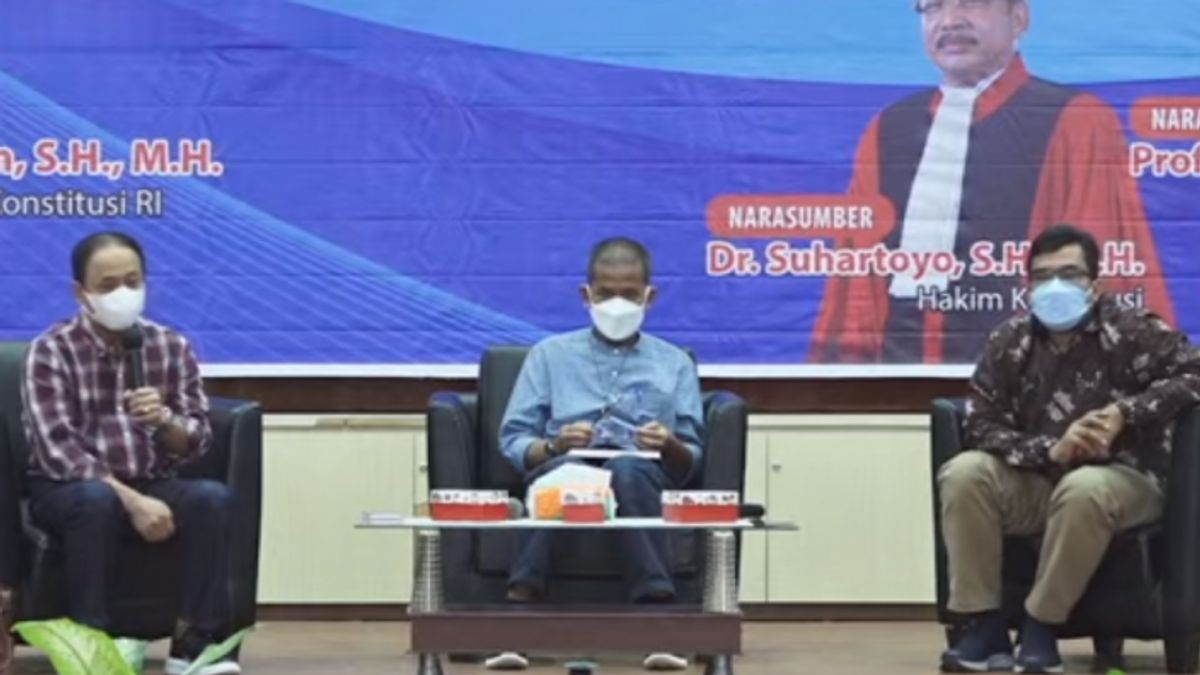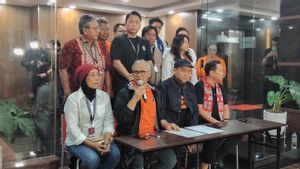JAKARTA - Constitutional Justice Saldi Isra said that legal counsel in reviewing laws at the Constitutional Court (MK) did not have to be advocates.
“Students can become lawyers. There are several groups from campus who come (to the Constitutional Court) to become legal counsel not with the status of an advocate," said Saldi Isra in a public lecture "The Constitutional Court and the Character of the Constitutional Court Procedural Law" which was broadcast live on the YouTube channel of the Indonesian Constitutional Court from Padang, reported by Antara. , Friday, October 15th.
In legal terms, an advocate is a person whose profession is to provide legal services, both inside and outside the court, who meet the specified requirements, such as having a legal higher education background and being declared to have passed the exam held by an advocate organization.
According to Saldi Isra, the basic idea of the policy is the Constitutional Court's view that all people or applicants have the right to fight for their constitutional rights in the Constitutional Court.
When the applicant does not feel he has the ability to fight for that right, he can ask anyone to become a legal representative who accompanies him in court as long as he is asked to understand the procedural law in the Constitutional Court.
Furthermore, in the public lecture which was held to coincide with the 70th Anniversary of the Faculty of Law, Andalas University, Constitutional Justice Suhartoyo also added that applicants are allowed to use mentoring.
Companion can be brought in from someone who knows procedural law or provides psychological support, such as family.
"It (using mentoring) can be done as long as in the context of assistance it provides empowerment in proceedings in the Constitutional Court court. It is enough to tell the panel judge that he wants to be accompanied,” Suhartoyo said.
Suhartoyo also explained that the policy was very different in the general court. Assistance is only found in the trial of criminal cases in the area of public law. These assistants are known as legal advisors.
However, in practice, this policy had problems. Suhartoyo said that the flexibility of determining attorneys set by the Constitutional Court could create jealousy for advocates. Fortunately, the Constitutional Court has cleared up the misunderstanding because the policies taken are aimed at promoting constitutional rights.
The English, Chinese, Japanese, Arabic, and French versions are automatically generated by the AI. So there may still be inaccuracies in translating, please always see Indonesian as our main language. (system supported by DigitalSiber.id)













